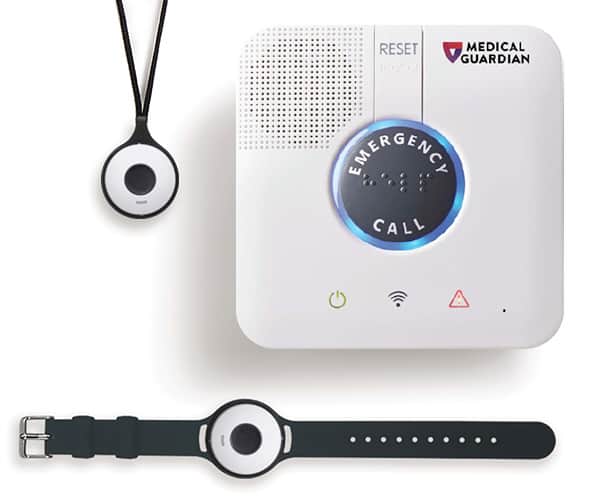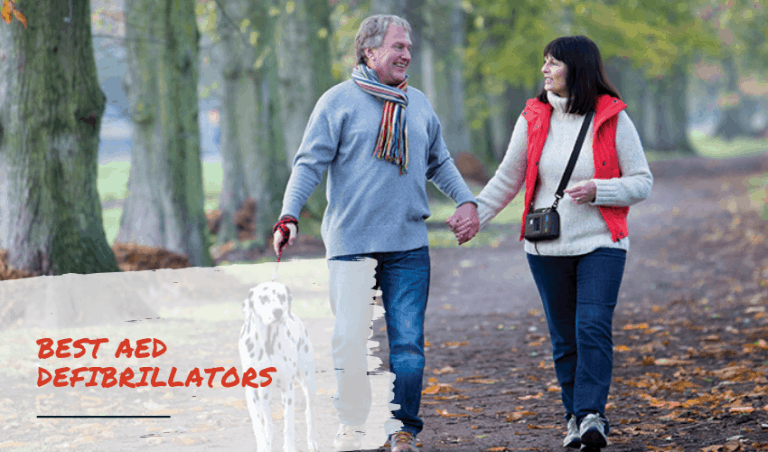Table of Contents
- Best Alexa Skills for Seniors You Should Know Of - May 16, 2021
- Magic Ear Review: Does it Actually Work? - May 16, 2021
- GreatCall Touch 3 Review: What is it & is it a Good Option for Seniors? - September 3, 2019
When it comes to medical alert systems like Medical Guardian, most people tend to think of them as a safeguard against falls. That idea has been ingrained in part by the ubiquitous “I’ve fallen and I can’t get up” infomercials. But while one of the main reasons to invest in a medical alert system is to protect against falls within the home, some alert systems offer protection against another danger for seniors living alone: carbon monoxide poison.
Carbon monoxide poisoning, of course, doesn’t just happen to seniors. Since 2003, according to an investigation by NBC, over a dozen Americans have died in subsidized public housing from carbon monoxide poisoning, prompting the Department of Housing and Urban development to instigate the very first federal law requiring carbon monoxide detectors in public housing.

While that might not sound like a lot of people, considering most of them were likely younger and without disabilities, it hints at a larger concern. And for seniors living alone, the risks are greater.
In this review of Medical Guardian, we’ll briefly touch on the more typical worry of falling, but we’ll also discuss a few other dangers seniors are more prone to when living alone, and in the process, see how well Medical Guardian does in providing protection.
How common is carbon monoxide poisoning?
Between 2010 and 2015, a little over twenty-two hundred unintentional carbon monoxide deaths were reported in the United States, at rates that held steady throughout the five year period. Deaths peaked in winter predictably; in 2015, the months of December, January and February accounted for about thirty-six percent of the total fatalities for the calendar year.
The problem is still ongoing, too. The Center for Disease Control and Prevention confirms these rates by noting that over four hundred Americans, young and old, die from carbon monoxide poisoning every year.
As always, it’s possible that deaths are underreported. It’s also important to note that we’re discussing unintentional deaths and not including intentional deaths.
Why is carbon monoxide poisoning risk for seniors especially?
While not extremely common, carbon monoxide poisoning poses a risk for people across age brackets. For seniors, it’s a slightly bigger concern if they have reduced senses of smell and sight. While carbon monoxide itself is odorless or colorless, seniors may be more at risk to not noticing fumes, or, if there is any cognitive decline, however slight, could be more forgetful in turning appliances off.
Even if one does not die from carbon monoxide poisoning, carbon monoxide has been linked to falling ill in the seniors, and also to those who have asthma or heart disease.
How/ why does carbon monoxide poisoning occur?
Carbon monoxide poisoning occurs when combustion fumes are inhaled. Gasoline, coal, natural gas, and kerosene are the main sources of these fumes. When too much is inhaled, the carbon monoxide deprives the body of sufficient oxygen by attaching to hemoglobin, the protein-based molecule responsible for carrying oxygen from the lungs to tissue and back to the lungs.
What are the most common sources of fumes that cause carbon monoxide poisoning?
While there are many specific sources, among the most common are everyday appliances and vehicles, used improperly or not carefully monitored, including:
- Appliances, such as broken furnaces or water heaters; gas stoves or kitchen ranges; gas space heaters; and indoor grills.
- Vehicles, including cars of any kind but also engine based boats, or boats containing space heaters or gas based cooking devices.
- Power tools, such as chainsaws, power washers, snow blowers, and even lawn mowers.
While that isn’t to say that these appliances only are dangerous, the key is making sure they are all used in properly ventilated spaces. Grills generally should not be used indoors; vehicles and power tools should not be operated in closed garages. In the case of some things, like furnaces and water heaters, regular maintenance is important.
What are the symptoms of carbon monoxide poisoning?
Symptoms of carbon monoxide poisoning depend on the levels; in many cases, people lose consciousness very quickly. Symptoms are fairly vague beyond that, ranging from headaches to feeling weak, short of breath, nauseous, confused, to blurred vision.
People are most at risk either while sleeping or inebriated; since carbon monoxide itself is both colorless and odorless, it can be hard to detect.
What’s the best way to prevent carbon monoxide poisoning?
The best way to prevent carbon monoxide poisoning is one we’ve already mentioned–to avoid using any CO emitting appliances in closed spaces and also make sure furnaces and water heaters are properly maintained.
But your next best bet and recommended especially for seniors, are carbon monoxide monitors. While you can buy separate carbon monoxide detectors, now some medical alert systems, like allow you to wear the monitor so you not only have monitoring wherever you go but also so that emergency services can be notified quickly–critical to survival.
The downside? Unlike some other medical device systems, Medical Guardian does not offer to monitor for carbon monoxide poisoning specifically. While it is great in terms of other protection features–which we will discuss in full over our review, it’s important to buy a detector of your own if you buy Medical Guardian. Buying a carbon monoxide detector may be a home upgrade worth the investment.
Are there any other reasons seniors should consider investing in a medical alert system?
Beyond carbon monoxide poisoning, there are many other reasons why a medical alert system might be a good idea.
Some even more common concerns for seniors living at home alone include:
- Falls: Likely you’re most aware of seniors being more susceptible to falling. Seniors are more likely to fall or trip in the home mostly due to physical changes that often come with aging, such as changes to balance, sight, and hearing. Other factors, such as changes in bathroom usage, can also lead seniors to get up more at night, which, with improper lighting, can cause trips or falls.
- Medical emergencies can happen to anyone but the likelihood increases with age, especially for seniors living with pre-existing health concerns.
- Fires from unattended stoves or appliances are also a concern–in fact, fires are another source of carbon monoxide poisoning as well.
For all of these, the inability to call for help is one of the biggest concerns in that more serious injuries or even fatalities could be avoided. That’s where a medical alert system like Medical Guardian comes in.
What is Medical Guardian?
Medical Guardian is an award-winning medical alert system that offers both home and mobile devices meant to offer more safety and security for seniors living at home. As of now, over 200,000 customers use Medical Guardian devices for protection against medical emergencies and accidents both in and outside of the home. Like all medical alert systems of its kind, the goal is to help seniors or those with health concerns retain independence but with the safeguard of being able to get medical help quickly should they need it–without the ability to access a phone.
Is there a way to tell if I or a loved one needs a device like Medical Guardian?
While you alone can determine if a medical alert system like Medical Guardian makes sense for you or a loved one, you do have the option to check your risk using their risk score calculator, which guides you through a short series of questions, including age, activity levels, and history of accidents and will email you the results. However, the best way to tell is to consult with a doctor.
What plans can you choose from?
Medical Guardian plans depend on what kind of devices you purchase. There are a total of four devices you can select from–two for the home exclusively and two that are mobile. Each device has a different monthly cost. We’ll look at the specific features of each device in a moment.
Are there any annual fees or contracts?
One concern with medical alert systems like Medical Guardian is being locked in with a contract. Luckily, Medical Guardian does not come with any contracts or additional fees, nor are there any cancellation fees or additional costs. Plus, you won’t pay for set up or activation fees as you will with most emergency medical devices.
That’s a sign of a more honest company–the problem with contracts is that they are very hard to get out of, even if you do have substantial problems. Another thing to keep in mind is that, for whatever reason, you’re only using the medical device for a certain circumstance or brief period of time, you’ll end up paying more than you originally would have. Being able to cancel and avoiding contracts are both key features you should look for in a medical alert system.
Are there different payment options?
You actually do have the choice of several different payment options. You can pay monthly, quarterly or annually, plus you can change your payment plan at any time.
Are there any protection plans?
Medical Guardian offers an optional protection plan against lost, stolen, or damaged devices. The plan also includes technical support as well as discounts for accessories or additional equipment. In the case of many plans, you might be charged at the beginning of the purchase billing cycle and it will be included with your monthly bill.
As far as if it worth it? The protection plan offers some reassurance should anything happen, and a new device could cost up to three hundred and fifty dollars. Should you break or lose a device it may be worth it long term, but it’s also important to note it’s normally rather hard to break devices–the most likely issue would it being lost. It’s up to you to decide if a monthly is really worth it, but it’s nice to have an option.
What if I don’t like the device? Can I return it?
You do have an option to return unused devices at ‘pro-rated refunds’. In order to do so, you must first cancel your service with an official cancellation letter; you are subject to restocking fees and it takes up to thirty days for the cancellation to be processed, a process we would like to see expedited.
Are there any discounts allowed towards medical devices?
Medical Guardian offers some promotional discounts, but those are not valid if the order is changed. The company also offers a friend referral system where you go through customer service to recommend the device to someone. You can earn fifty dollars this way.
You also get a one-month free trial, free shipping, and a free lock box and extra button upon ordering.
What different products can I choose from?
As we mentioned, you can choose from four products–two home-based and two mobile based. But there are also two app-based systems as well. If the person intending the use the device mostly stays at home or does not go out much alone, the landline-based products will work and are less expensive. For most, however, the mobile devices are worth the extra cost for the ability to use anywhere and for any purpose.
- Landline Based: You have two options–the Classic Guardian and the Home Guardian.
-
Classic Guardian: Classic Guardian starts at a dollar a day, is the lowest cost option, and works in coordination with your landline with a range up to thirteen hundred feet. It’s a fairly simple central button that connects you directly to their twenty-four seven monitoring system.
-
Home Guardian: The Home Guardian device is just slightly more expensive, at a little over a dollar a day, offers the same basic button and connection to the support center. However, this one does not require a landline connection. While this is called the best deal, keep in mind that the panic button on the wearable device only works within six hundred feet, half the radius of the Classic.
-
- Mobile Based: You also have two options here; Mobile Guardian and Active Guardian. Active Guardian is touted as their most popular option.
-
Mobile Guardian: Mobile Guardian starts at one dollar and thirty-three cents a day and comes with built-in GPS technology.
-
Active Guardian is called an ‘all in one’ device, featuring a GPS system, Wi-Fi location technology, a long battery life, and fall alert senses. The plan with this device starts at a dollar and sixty cents per day.
-
- App Technology: Placing it ahead of many of its competitors, Medical Guardian also offers devices with app technology making them both more versatile and advanced.
- Family Guardian combines medical alert and monitoring system technology; this is a home-based option, but it offers the ability to connect with family and friends. Family and friends signed up will have access to instant notifications and emails if something indicates a problem on the other end. The system and access cost one dollar and sixty cents per day.
-
-
Freedom Guardian, a new option, allows you to access medical help–on your smartwatch. The cost is also one dollar and sixty cents per day.
-
Does Medical Guardian offer any additional features?
Medical Guardian has fall detection on one device, but it does not screen for carbon monoxide or fires. It is, however, water resistant, which means you can safely wear devices while you’re showering or if it’s raining outside.
How well are Medical Guardian devices received amongst customers? Medical Guardian products an average just over four out of five-star rating on Consumer Affairs, based upon almost five hundred customer reviews, and four point six out of five-star rating on Retirement Living. It’s also accredited through Better Business Bureau with an A-plus rating, has been featured on sites such as Top Ten Reviews and Best Companies.
Overall, it’s pretty well received in the industry of medical alert systems and customers were mostly happy with how well it worked. It does seem like some customers have issues with the fall detection system (which is available for one of their devices).
Overall, do we recommend Medical Guardian?
That depends. Medical Guardian has some excellent features that make it stand apart from competing for medical device systems and also comes fairly highly rated with minimum complaints. The best features include:
- A variety of home and mobile devices
- App-based technology, including home-based monitoring and an app for smartphones
- Reasonable pricing
- No annual contracts or activation fee
- High ratings
- Better Business Bureau accredited
- Flexible payment plans
- Water resistant, so devices can be worn in the shower
That said, there are some downsides, including:
- No monitoring for fires or carbon monoxide
- The fairly small radius for some devices
- Most complaints revolve around fall detection technology
Overall, Medical Guardian is a good pick for basic alert use but falls short on additional features.




